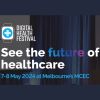Compared to other industries, healthcare is known to lag behind when it comes to adopting new technology and innovation. This is especially true with regard to harnessing big data techniques in order to find useful health data for improving disease diagnosis or discovering new treatments.
You might also like: Healthcare 2019: The year of Big Data Blockchain
The NHS is one such organisation that needs to make data, held by various units or agencies within the large healthcare system, more useful for researchers and clinicians. Since these NHS bodies use data silos and systems that don't talk to each other, this makes it difficult to discover what data exists for those who want to engage in research and innovation.
To address this problem, the newly formed Health Data Research UK has been tasked to revamp the way the NHS handles information. The aim is to bring together health data to provide the basis for increased research using the most up-to-date techniques. However, providing access to important health data should be done in a secure manner so as not to compromise patient privacy. Preserving individual privacy while still making data as useful as possible means taking a new approach, according to Gerry Reilly, CTO of HDR UK, set up a year ago by 10 public sector organisations.
In this new model the research takes place inside the environment controlled by the data custodian, Reilly explained, citing the need to "move away from the world where you request access and it turns up on a USB key or a DVD." He went on to say that we must move to an approach where distributed machine learning and distributed analytics can be put to work on data without ever moving it from outside of the data custodian's secure environment.
Hopefully, with advances in artificial intelligence (AI) and machine learning, healthcare will be able to tackle big data challenges like personalised medicine, and assemble sufficiently large datasets to allow investigations into even the rarest of diseases.
HDR UK is also involved in other undertakings including:
- Funding healthcare research projects: One project aims to identify potential patients for clinical trials based on data from hospital visits; another is a cloud-based system that will analyse how genetic differences affect how rare diseases present in patients
- Working with the Health Data Research Alliance. This is done to help spread best practice on data stewardship for the biggest holders of healthcare data
Next month, HDR UK is set to launch a
competition to create five digital innovation hubs across the UK to curate the
information that's available to enable research.
"One of the problems we have around data in the UK – and probably everywhere else in the world – is the data is of a very mixed quality. We've got to do a better job of curating data, but it has to be done in a targeted way. We don't have the ability, skills or money to attack it all, but we can still make a big difference," Reilly points out.
In addition, the health sector is currently experiencing a data-science skills shortage, which stretches from doctoral level right through to health workers. Providing targeted training for the latter might be relatively easy, according to Reilly, but attracting the right calibre of data scientists into the public sector will mean attracting them from higher-paying industries.
As well as expanding the existing data-science workforce, providing better training for all levels of healthcare professionals will also be crucial to turning the UK into a health data leader. It's an issue that's already on the government's agenda: its Topol Review, released earlier this year, set out a plan for how the health workforce could be prepared for new technologies that are increasingly being used in the industry.
Source: ZDNet
Image credit: Pixabay























